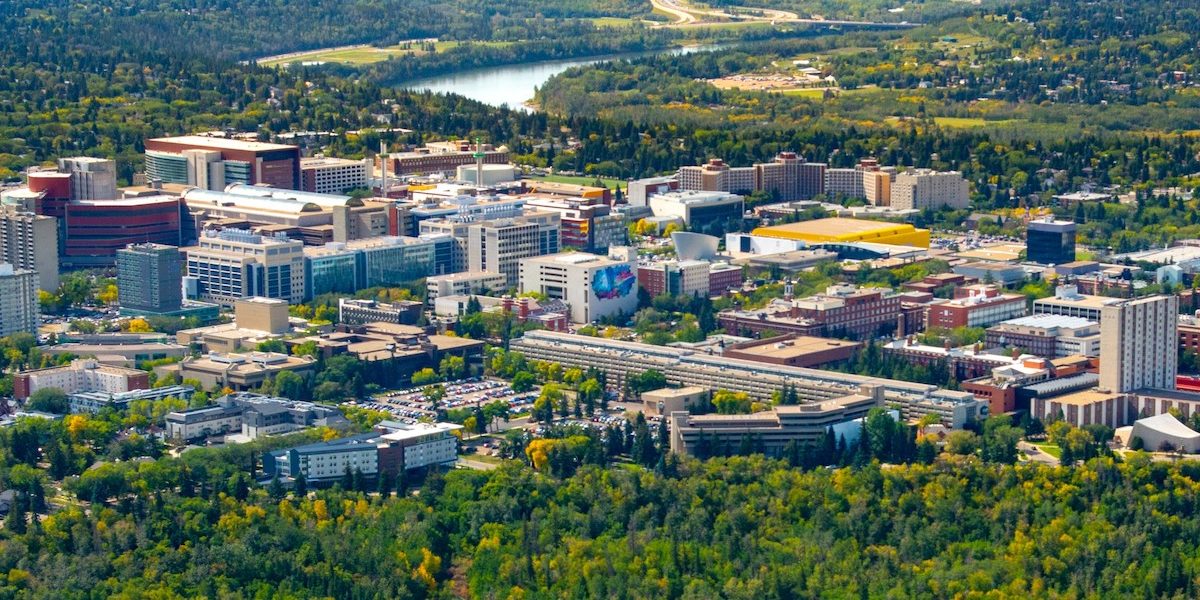The Alberta is Calling vanity advertising campaign featuring the voice of the province’s soon-to-be-retired premier continues to tout benefits for would-be newcomers to Alberta that Jason Kenney’s United Conservative Party (UCP) government has striven to undermine.
This weekend Kenney was tweeting about the University of Alberta’s ranking among the Top 100 on a list of 2,500 world research universities.
“Top notch education,” Kenney, or his campaign surrogate, enthusiastically tweeted on Saturday. “Alberta is calling.”
The little web image attached to the tweet cheerfully proclaimed: “Alberta is calling to say … THE U OF A IS RANKED IN THE TOP 100 UNIVERSITIES GLOBALLY.”
Who knew that irony was part of the Alberta Advantage?
Which is not to say that the Edmonton-based U of A isn’t a fine institution … for now.
But Kenney’s UCP government has certainly worked hard during its tenure to ensure the U of A is a worse university than it was when the party came to power.
That’s a fact would-be emigrants from Vancouver and Toronto with academic ambitions might want to ponder before picking up the phone to learn about the relatively low fuel and real estate costs in Alberta’s capital region.
In 2021, the Kenney Government imposed a massive $126-million cut to post-secondary education in Alberta – more than half of it to be borne by the U of A.
In that one year, the U of A’s provincial grant was slashed by $60.1 million.
“This 11-per-cent reduction, combined with cuts in 2020-21, totals a $170-million reduction in our provincial funding over the last two and a half years,” University of Alberta President William Flanagan lamented in February 2021.
“Twenty-five per cent of Alberta’s post-secondary students attend the University of Alberta, yet the province has required us to bear nearly 50 per cent of the reduction in provincial funding,” he added at the time.
Among the impacts of those cuts were “exceptional tuition increases” – in some cases more than 100 per cent – in professional programs. (Those increases come into effect with the term that begins this September.)
More than 1,000 U of A employees lost their jobs as a direct result of the cuts. And there were other, less obvious, impacts as well, such as cuts to subscriptions to academic journals that harm the ability of U of A students in many fields to do research for advanced degrees.
There was talk at the time of the 2021 provincial budget this was the cost of the university’s previous president’s refusal to knuckle under to then-Opposition-leader Kenney’s unhinged demands the institution drop its plan to award an honorary degree to scientist and broadcaster David Suzuki – seen by the UCP as its environmental arch foe.
Last February, the U of A lost another 10.7 per cent in provincial funding, saying in a news release it had lost $222 million in revenues over the previous three years.
Flanagan, however, sounded more optimistic, telling a local newspaper that the U of A stood to benefit from additional planned funding for fields the province has identified as winners, such as energy, finance, and technology.
Still, the consequences of UCP policy on post-secondary education in Alberta and at the U of A in particular have been doleful, notwithstanding the Edmonton university’s inclusion at No. 92 on that list of world research universities that apparently captured the attention of Kenney’s communications brain trust.
This was the first time the U of A had made it into the top 100 on the list of more than 2,500 universities that, according to the university’s press release, counts such factors as the quality of faculty, the number of Nobel Prize winners, and the number of scholars cited in academic publications.
Four other Canadian universities are among the Top 100: The University of Toronto, University of British Columbia, McGill University, and McMaster University.
For some reason, Kenney’s communications boffins didn’t bother to mention that the respected list is compiled by Shanghai Jiao Tong University. In 2020, the premier was sharply criticized in Canada and abroad for comments he made about the origins of COVID-19, which opresumably played well in Ponoka.
Last week, readers will recall, we observed the irony of Kenney bragging that Alberta has the highest average wages in Canada as part of the campaign – after beginning his term as premier considering legislation to impose pay rollbacks on health care workers, including nurses, while claiming Alberta could no longer afford to be a high-salary outlier.



